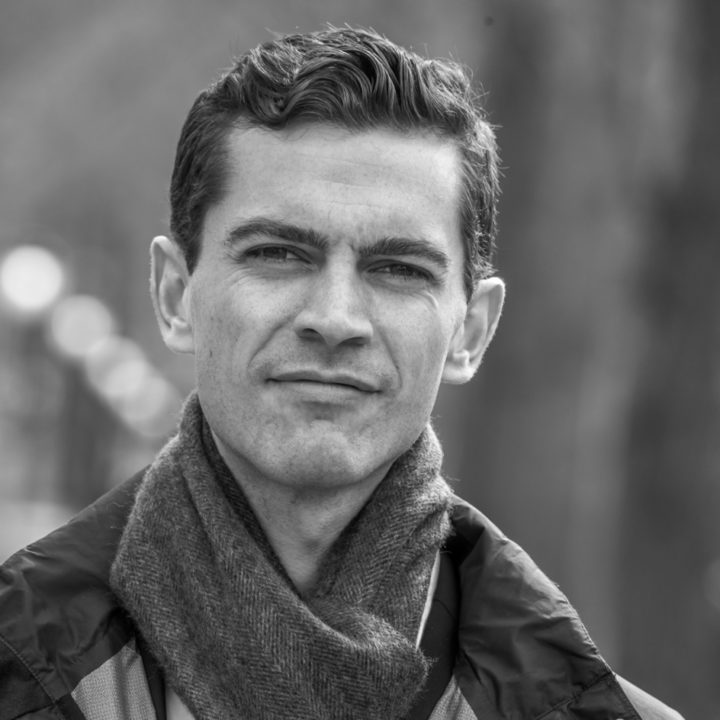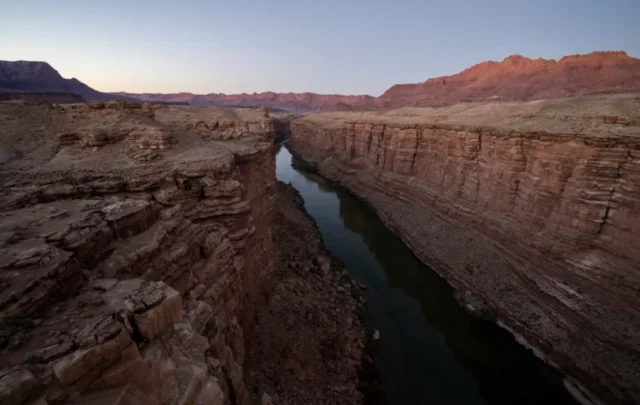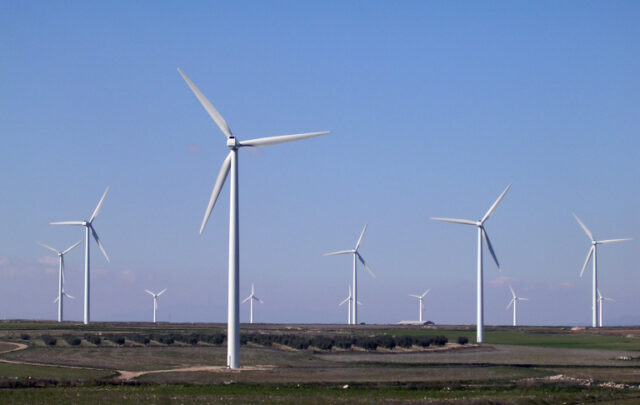How did humans go from savanna-dwelling primates to moon-bouncing Tide Pod™ eaters? This is the big question that Big History has been trying to answer for millennia. Sure, other ages may have framed the question differently.
Pre-Internet historian Herodotus may have asked, How did humans get from Promethean clay to Babylon? Mass death enthusiast Christopher Columbus may have asked (he didn’t), How did humans get from biblical clay to Indian gold? But for the past few hundred years, the Big Thinkers, from Jean-Jacques Rousseau to Jared Diamond, have generally agreed on the basic contours of our history:
Humans set out on our baffling journey in a pristine Garden of Eden, living benignly in small bands of hunting and gathering primitives. They would dance, copulate, and paint in caves in an egalitarian state of nature, or a nasty, brutish one depending on your temperament and desire for couch cushions, cotton cuffs, and monarchy. Our fall from Eden came with the slithering of agrarian city-states into our lives. As soon as we began cultivating beans and beer, the story goes, we had to build a large bureaucratic apparatus to manage all the products and people populating these nascent city-states. Given the complexity of this task, dictators, kings, and emperors – keen administrators, that is – were unfortunately necessary to organize this dense population into productive workers. Most of the people living in this new thing called “civilization” would have to toil as slaves, alas. Sorry, this is just the Faustian bargain one must make to enjoy cities and storable food: wage/chattel slavery and all-powerful despots in exchange for literature, indoor plumbing, and memes.
But anthropologist and author of Debt: The First 5,000 Years, David Graeber, is having none of it. In a recent piece published in Eurozine, he and UCL archaeology professor David Wengrow argue that this story is all wrong. Instead, the Davids suggest, the story is a lot messier and a lot more open to alternative forms of civilization and economy:
In the beginning, there was no Eden. Pre-agrarian people were not all living in tiny, isolated bands of foragers. Some practiced pastoralism, herding goats and sheep, while others practiced horticultural, proto-agrarian techniques for cultivating semi-domesticated crops, while others would shift between modes of production depending on resource availability and season. Some roved in small, isolated kin bands; others would meet up at Stonehenge for a big months-long bender; or both.
Nor was egalitarianism baked into these early communities. Some were more patriarchal, others matriarchal, some were despotic, others democratic. Some were both: circumpolar Inuit people have a tradition of seasonal variations in social structure, their summers marked by rigid hierarchies during which patriarchal bands of hunters hoard food fish and reindeer meat, their winters egalitarian utopias in which “virtues of equality, altruism, and collective life prevailed.”
Furthermore, the transition to agriculture was not a revolution, they argue, but a long, gradual process of experimentation with diverse modes of production taking place over thousands of years and across thousands of miles. And just as there was political diversity among pre- or proto-agrarian groups, the agriculturalists were just as diverse in how they ordered society. Not all of these new agrarian populations were ruled by tyrants. Contrary to the idea long embedded in the imagination of Big Historians that all cities of antiquity were dynastic monarchies, “The first cities,” they suggest, “were often robustly egalitarian.”
Of course, as the authors point out, this new story is not really that new, and is not really that different from what mainstream anthropology has been purporting for a while. Instead, it’s a repudiation of popular historians – Francis Fukuyama, Jared Diamond, and Ian Morris are the three they focus their critique on – who try to build grand theories, oversimplifying, in their estimation, the complexity of humanity’s story. Their stated point of breaking the monopoly this story enjoys on our collective imagination is to liberate today’s political possibilities. Their point is to say that we could escape this cycle of creeping dictatorship and build more egalitarian polities even in our most dense, complex cities and economies. If we can imagine something better and desire it sufficiently, then we can fight for it and win it.
This is a rigorous throwing down of the gauntlet to some popular historians who have perpetuated a simplistic story of civilization, to politicians who lay their claim for power on the foundation of these civilizational cosmogonies, and to all of us who would sit satisfied to know our place in the hierarchy, placid but for a story that could free our aspirations, set our passion for freedom and fairness ablaze. Graeber and Wengrow have written an important rejoinder in the debate between those materialists who believe geography, resources, and physical modes of production are the most important factors in determining social structure, and those who believe ideas, culture, philosophy, social connections and movements, and institutions are more important forces shaping the world.
In this time of dwindling hope and meaning, this kind of opening of possibility is vital. Because this challenge is so important, because with climate disruption, collapse of the biosphere, burgeoning resource conflicts, and the inexorable consolidation of wealth and power rampant through the world, it’s worth trying to falsify the idea, or at least offer a caveat.
While it’s vital that we see all the myriad potentialities before us, we must also be clear eyed about those physical forces that stand in the way of progress, making reform, if not impossible, that much more difficult to sustain. The fact is, history is replete with brutal dictators and wildly successful emperors who practiced mundane genocide for sport, and enslaved multitudes for generations. The monuments to their successful savagery sneer in our faces to this day perched on pedestals we pay to visit. The fact is, while some early cities were egalitarian, they generally did eventually coalesce into tyrannical forced labor camps propping up playgrounds for the privileged and the violent.
People who lived in settled civilization, whether in Mesopotamia, China, India, Europe, Africa, or the Americas, usually, on the whole – not exclusively, but generally – for a bulk of preindustrial agrarian history did tend to live in states of relative inequality, privation, squalor, and servitude. At its most egalitarian, Classical Athens, held up as one of the few examples of democracy in antiquity, was still half made up of slaves. Only a small fraction of the population – male and landowning – were considered citizens with rights and enfranchisement. Was Antebellum South Carolina a democracy? Not even the highest egalitarian ideals of the ancient world to that point could free Athenian slaves.
Across the world, across cultures, ideologies, throughout all the myriad social forms and philosophical trends in the world, over and over again, brutal despotism has generally won. The so-called Axial Age thinkers like Buddha, Confucius, Lao-Tse, Zarathustra, and others from Greek, Jain, and Judaic traditions advocated ideas of liberty and egalitarianism. Jesus was a successor to those ideals. Far from ushering in lasting cultural revolutions, their ideas were instead, nearly without exception, co-opted by rulers and exploited to justify the continued enslavement of the masses. They were doled out as opiates, one might say. Civilization has bloomed from a soil soaked in blood, tilled by the hands of slaves. Much of it still is, and no philosophies have succeeded in changing that fact for long.
Plenty of materialist theories have been put forth to explain this perpetual bend toward dictatorship and incessant rise of forced labor economies. Historian Karl Wittfogel developed his controversial “hydraulic civilization” idea – which eminent anthropologist Marvin Harris expanded on in Cannibals and Kings – purporting that populations in arid regions dependent on river systems for irrigation water were particularly vulnerable to the rule of hierarchical administrative states and mass wealth hoarding. Because an administrator could withhold the source of food and economic production so severely with the control of water flow, they could maintain strict control over the population. In less arid places, like Europe, where water could be less easily controlled, social structures were less likely to coalesce into strict hierarchies. The clash between more egalitarian, less patriarchal cultures in wetter Europe – like those inhabiting modern UK, France, and Germany – against the more rigid hierarchies of the semiarid Mediterranean in antiquity illustrates that division. (The more organized and hierarchal Romans won, spreading their dominion and totalitarian culture.)
Ian Morris, in Foragers, Farmers, and Fossil Fuels, explains this tendency toward hierarchy and inequality in agrarian societies as occurring due to the nature of energy capture: that is, the energy on which societies depended could be most efficiently captured through organized, hierarchical, patriarchal social structures. The authors include Morris in their critique in perhaps the weakest point of their piece, responding to one of Morris’s New York Times op-eds instead of the arguments in his book, which feels more like a straw-man beating than a comprehensive rebuttal. It’s not clear from their piece that Morris’s framework is fundamentally incompatible with the point the authors are making.
Being a geographer rather than an archaeologist, I won’t speak further to these old debates about antiquity. To better understand this tension between materialist forces and social forces impacting economic and political structures and find evidence supporting one side or another, we don’t really need to look that far back. Instead, for a little insight into this debate, let’s look at the industrial age in which we live and the one resource that has made it possible: oil.
Industrial economies have mostly tended toward oligarchy. Not the brutal dictatorships of the agrarian world, but nevertheless toward the consolidation of wealth and power into few hands. The emancipatory politics of Marx were a response to this industrial consolidation. But they could not forestall the near constant and inevitable swing of communist regimes to violent, expansionist dictatorships. The rhetoric of mass individual liberty animating liberal economies could not stop capitalism from coalescing into the insidious, kleptocratic oligarchies of extreme wealth that sow privation and misery throughout the world today. Emancipatory ideals, and the activism and solidarity that have blossomed from them, have been important in jostling the politics of the 18th to the 21st centuries. But alone they cannot save us from perpetual consolidation of power. We have to recognize what is at the heart of this constant return to hierarchy and one answer, though it’s not the whole answer, lies in the nature of oil.
The “oil curse” refers to a long-studied phenomenon in which states that adopt petroleum as a significant foundation of their economy tend toward dictatorship. Of the top ten oil producing countries in the world, nine are oligarchies. Regardless of whether they formally consider themselves liberal democracies, communist states, constitutional emirates, or presidential federations, they all share the distinction of being ruled by a small, embedded elite under which their people suffer staggering levels of precarity, coercion, and incarceration, easily meeting the classical definition of oligarchy. When “developing” economies discover oil and become petrostates, the rule is: democracy suffers, inequality abounds, and civil war frequently ensues. The reason for this mostly comes down to the nature of oil: it is that rare resource that can be easily concentrated, it almost immediately turns into liquid cash money, and every industry and market in an advanced economy depends on it. This basic fact of the resources makes it more likely that it will be hoarded or withheld, and in doing so, will give a tiny minority immense wealth and power.
Of course there are a handful of exceptions to the oil curse. Norway has established a sovereign wealth fund meant to distribute its North Sea oil wealth broadly through the country. Norway has not succumbed to a tiny oligarchy to the extent of its counterparts, “Yet even the virtuous Norwegians have been raiding it for politically popular causes,” as the Economist puts it. Canada, sixth largest oil producer, is relatively egalitarian, but even liberal politicians like Trudeau ultimately work in service to the oil industry, as his recent deference to industry demands attests.
The US became a virtual petrostate in the mid-19th century with John D. Rockefeller monopolizing oil production and becoming the richest man in history (his assets have been calculated at the equivalent of $340 billion in today’s economy). Since then, the country has suffered an oil curse of its own. The late-19th century was wracked with crippling inequality. “The richest 1 percent of Americans had the combined income of the bottom 50 percent and owned more property than the other 99 percent,” writes Colin Woodard in American Character. A popular movement ushered in the Progressive Era, which put in place the foundations for the New Deal era to bring broader individual liberty and equality to the country. But that midcentury dip in inequality has vanished. Levels of wealth and income inequality have returned to Gilded Age extremes, along with all their concomitant misery, despoliation, and despotism. That New Deal golden age appears now a mere brief aberration in the history of an oil-soaked United States.
There’s no reason to believe that current or future attempts to bring inequality to heel as the Keynesians did will succeed for longer than a generation or two, if at all, regardless of the left’s intellectual victories or the strength of its movements. That is, unless the US abandons its complete dependence on oil.
Today, we have an opportunity to forge a point of convergence between the idea that fundamental resources drive political change versus institutions and cultural ideas sparking progressive change. Why not try both? To dislodge our oligarchs, we must use every tool at our disposal. If we accept the idea that oil has largely cast a pall over our politics, that it is fundamentally more difficult to build an egalitarian economy with oil as its base, then to build a better world we must forsake oil. Simultaneously, we must build the solidarity movements necessary to ushering in more free and democratic polities. The tools with which to achieve both of these tasks exist now; in fact, there may be just one tool that can address both.
As I’ve written elsewhere, a grassroots, community energy movement can facilitate both goals. Decoupling the economy from oil by expanding renewables, particularly those that can be owned in a distributed manner by municipalities, neighborhoods, and individuals, could break the oil curse now helping to secure the immense inequality haunting the US. Owning the means of energy production is just as important to egalitarianism as broad ownership of economic production; they are the same. But, materiality aside, pursuing an energy movement could also build greater interdependence between people, could help break down the alienation that our economy’s masters have wrought, and could provide tangible community projects that bring people together into newly forged networks of solidarity. It is within these new energy networks, by their nature and by ours, that “virtues of equality, altruism, and collective life” could again take root.






